On Wednesday April 24th, MCHC members gathered at La Casa de Amistad, an organization founded in 1973 for the purpose of supplying resources to Latino youth. Founded by Fr. John Phalen, C.S.C., and many other dedicated Latino community leaders. La Casa de Amistad, located on S. Michigan Street in South Bend has created a beautiful space to serve the community since they opened this location in 2021. They offer various programs in an effort to assist Hispanic youth in self-acceptance and appreciation of their culture, while they navigate life as young people.
This meeting was hosted by Jessica Brookshire and Jennifer Lefever, who provided the opportunity for discussion, accompanied by lunch for members to enjoy. The topic focused on homelessness in the community, and how we all can contribute to building a trauma-aware environment, bringing understanding and compassion. MCHC members, especially those on the frontlines of addressing community health, took turns describing instances in which becoming trauma-informed enhanced their ability to best serve community members who are trauma survivors, and who may not currently have a safe place to reside. Several of our members who are community health workers reiterated that being trauma-sensitive has been one of the most important parts of their training as they encounter unpleasant energies daily, with people who are defensive, reactive, and who feel unsafe.
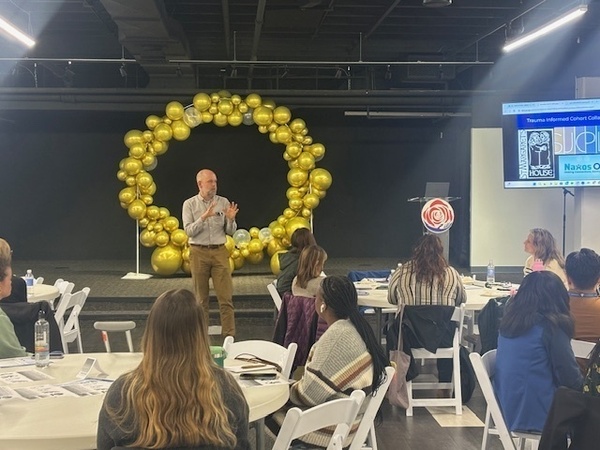
Carl Hetler, Pastor Emeritus, and Homeless Coordinator for the City of South Bend spoke about his work and experiences with the homeless population in South Bend, Elkhart and Mishawaka. During the discussion, Carl offered several insights which resonated deeply with MCHC members. He asked that everyone go around and give reasons as to why someone may become homeless, reasons such as: chronic illness/injury, job loss/income loss, death, changes to relationship status, etc, de-stigmatizing homelessness to point out that any one of us could be in this situation, at any time.
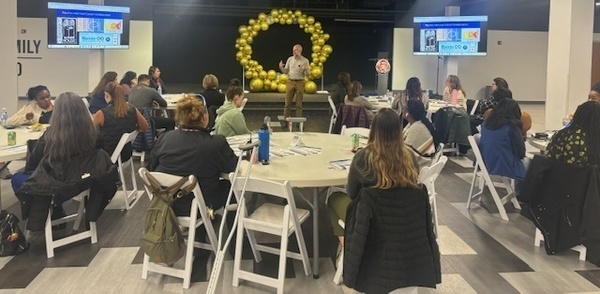
Members were encouraged to offer words or phrases to describe what comes to mind when we are asked to think of having a home. Words like: safety, security, pride, wealth, asset, cozy, and stability traveled through the room, proving that those who are housed have an undeniable advantage to having a much higher-quality day-to-day existence. “How can we expect someone to function normally in society when they are fighting daily for basic survival and needs?” Carl stated, “Well, we can’t!” “We have to be able to accommodate these limitations and help people build back their confidence and their integration back to themselves and their community.”
Hetler went on to describe a program and website, built to provide the homeless in South Bend with as many resources as possible, keeping in mind that often, these individuals do not typically have access to the internet and printing. Carl and his cohorts created a framework for the program: South Bend Cares, Connects, and Constructs. The website with resources for homelessness can be found at: https://southbendin.gov/department/community-investment/homelessness/
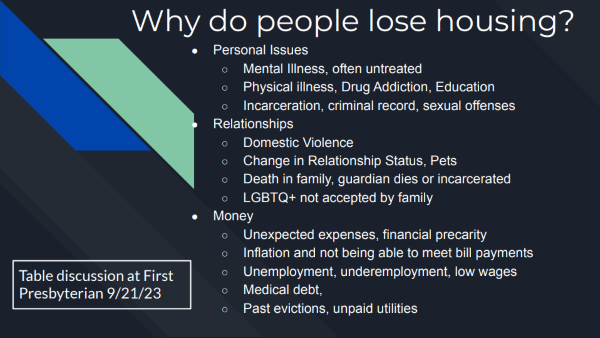
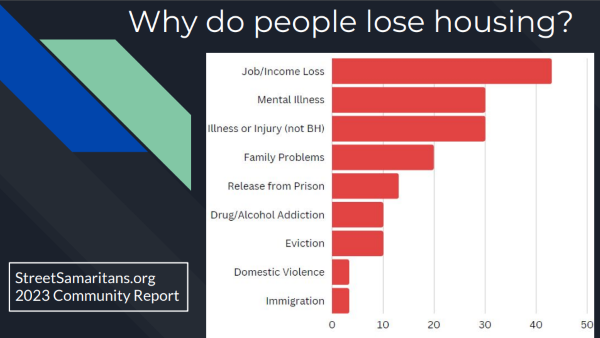
One member, a female firefighter from the City of South Bend astutely noted that none of us are immune to the risk of losing our homes, freedom, and basic needs. Homelessness is a stark reminder that circumstances can change swiftly, and any one of us could find ourselves in need, hoping for compassion and understanding from others.
Our life experiences, spanning from childhood to adulthood, profoundly shape our interactions with others and our self-perception. During the session, Carl Hetler prompted us to engage in role-playing exercises, aimed at equipping MCHC members with the skills to effectively de-escalate conflicts and facilitate a sense of safety for individuals grappling with unresolved trauma. He emphasized the power of reframing limiting beliefs, encouraging us to shift from statements like 'I can't' to more empowering expressions such as 'I can't, yet.' This approach aims to empower trauma survivors and individuals experiencing homelessness by acknowledging their potential for growth and helping them reconnect with their intrinsic needs, paving the way for personal flourishing.
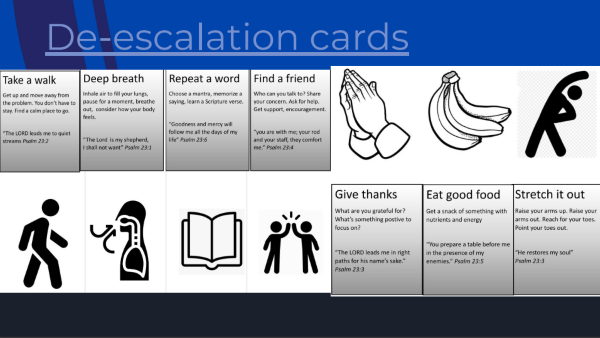
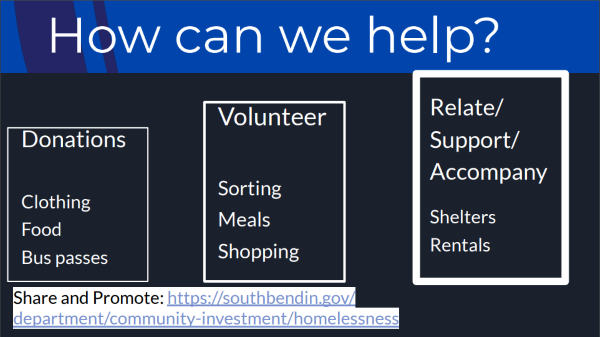
Carl underscored the primary goal of his work: to develop a dynamic website that provides up-to-date resources pertinent to our community's needs. This platform aims to offer comprehensive maps, essential points of contact, and support for basic needs and low-barrier care. In addition, he emphasized the importance of ongoing education, advocating for heightened awareness, information dissemination, and sensitivity toward trauma in others.
Central to his message was the notion of establishing healthy boundaries and clear expectations for interpersonal interactions. He cautioned against engaging in power struggles with individuals grappling with pain and instability, stressing instead the importance of empathy and inquiry into their needs. Questions such as 'What do you need?' and 'How do we break the cycle?' serve as vital tools in creating understanding and support.
Carl drew attention to the often misunderstood behaviors of homeless individuals, noting their expressions of anger and unconventional behavior. He urged us to recognize that their actions may stem from past traumas and experiences beyond the comprehension of those in more privileged circumstances. Encouragingly, he expressed optimism about the efforts in Mishawaka, where a coalition has emerged with the aim of enriching the lives of the homeless community. Through collaborative initiatives and compassionate outreach, Carl envisions a future where support networks expand, enhancing the well-being and dignity of those in need.
The Michiana Community Health Coalition will not be hosting a meeting in May, but we will reconvene in June. We extend our gratitude to our members and organization representatives for their attendance and active participation in discussing the progress on such a crucial issue in our city. We eagerly anticipate our next meeting in June!